Analyzing data Normal Our Planet and Environment Worksheets for Ages 7-8
5 filtered results
-
From - To
Explore our engaging "Analyzing Data: Our Planet and Environment" worksheets designed specifically for children aged 7-8. These interactive resources help young learners develop essential skills in data analysis through fun and educational activities. Students will dive into topics related to our planet, learning to interpret graphs, extract meaningful information, and understand environmental data. Each worksheet incorporates colorful visuals and age-appropriate challenges that make learning about data relevant and exciting. Perfect for classroom settings or home study, these worksheets encourage critical thinking while fostering a love for science and the environment. Empower your child with the skills to analyze and understand the world around them!
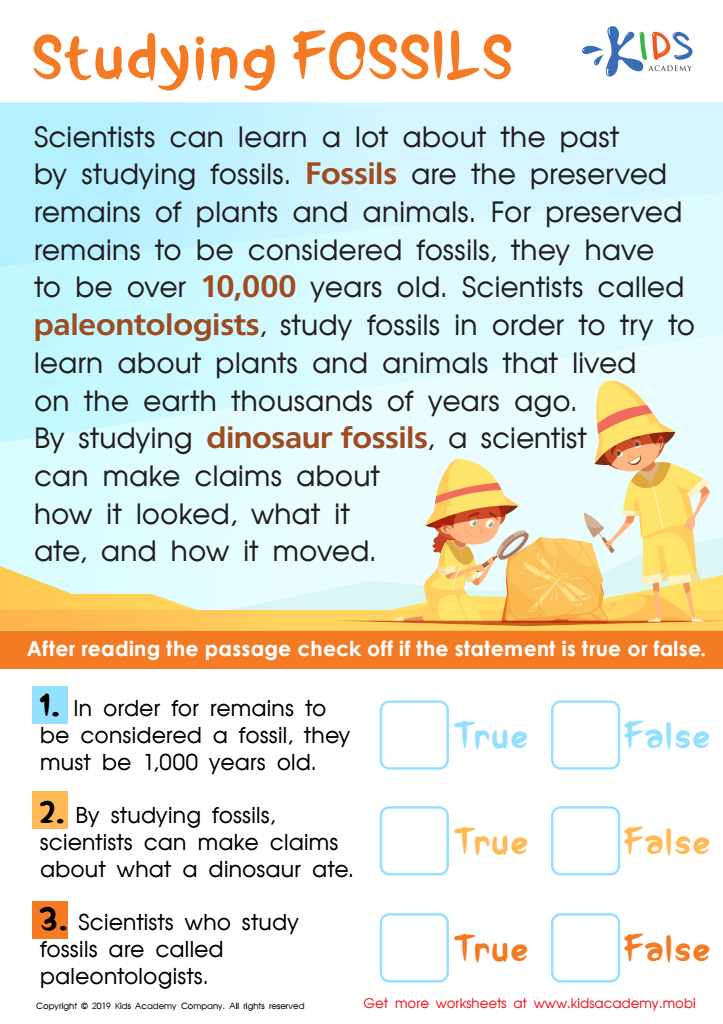

Studying Fossils Worksheet
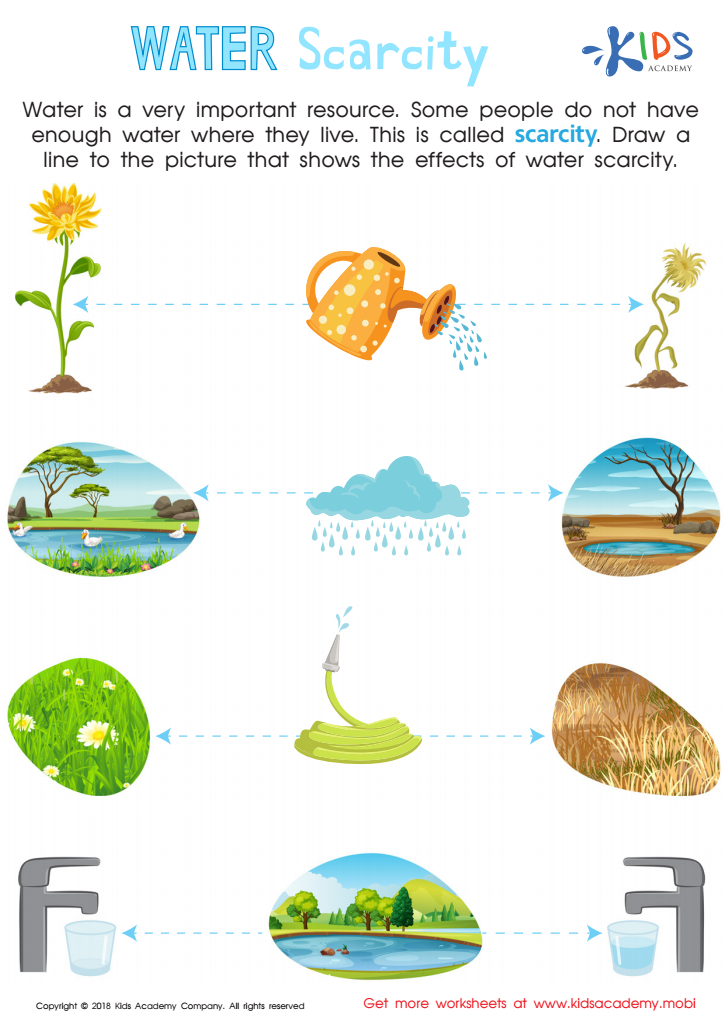

Water Scarcity Worksheet
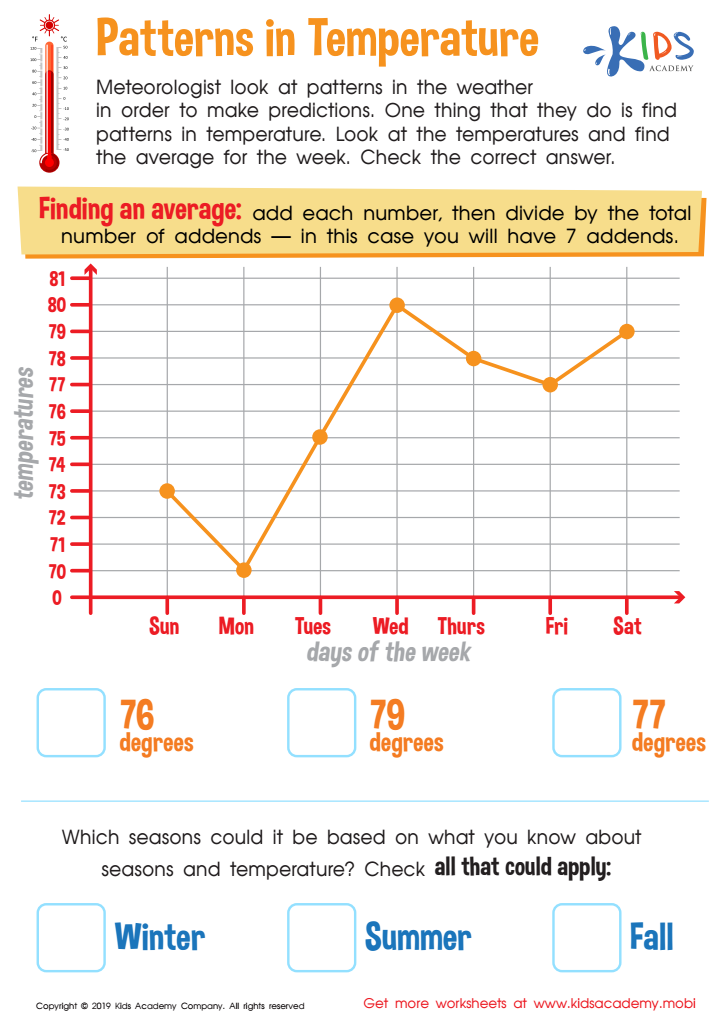

Patterns in Temperature Worksheet
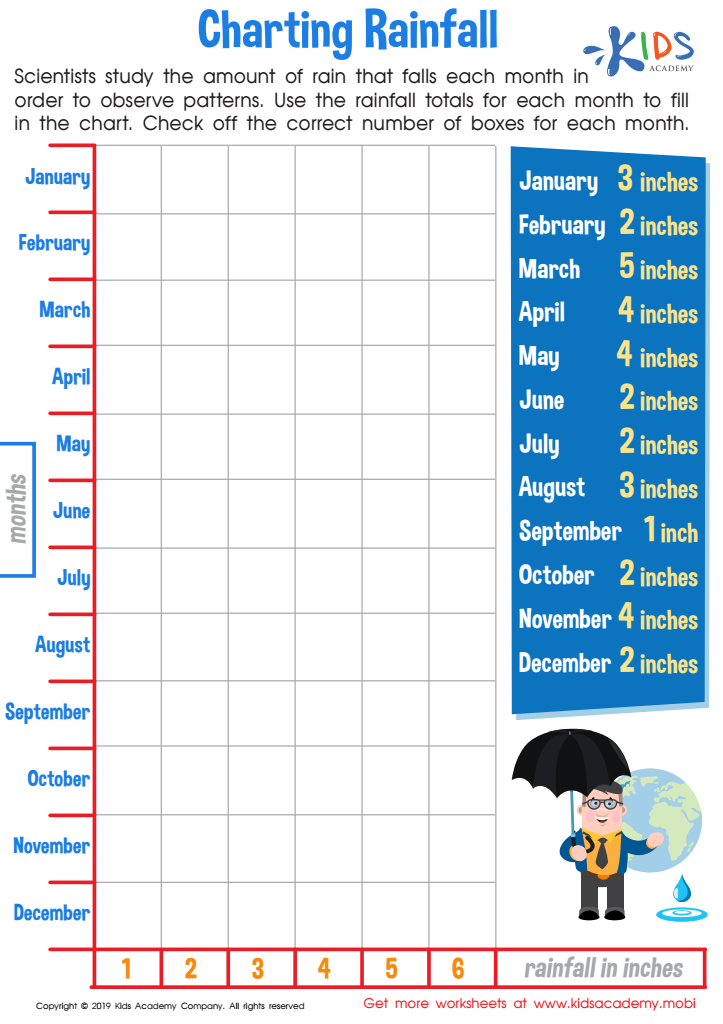

Charting Rainfall Worksheet
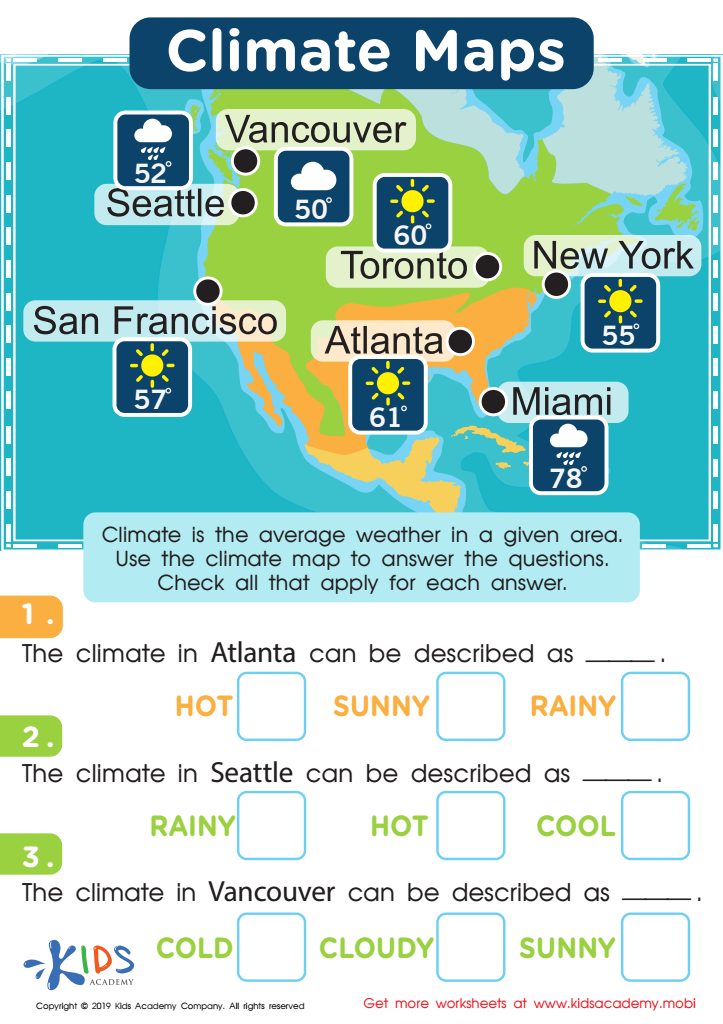

Climate Maps Worksheet
Analyzing data about our planet and environment is crucial for children aged 7-8, as it helps cultivate essential skills and awareness needed for future stewardship of the Earth. For parents and teachers, engaging with this data fosters critical thinking and analytical abilities, as children learn to interpret information, identify trends, and make informed decisions based on real-world issues. By exploring environmental data, children can grasp the interconnectedness of ecosystems and recognize their roles within them.
Moreover, data-driven projects can spark curiosity, enhance problem-solving skills, and encourage teamwork. Discussing climate change, pollution, and conservation efforts provides context that enriches subjects like science, math, and social studies while instilling a sense of responsibility and empowerment.
Furthermore, early exposure to environmental data teaches children about global issues and inspires a passion for the planet, prompting them to think about sustainable solutions. It also opens opportunities for engaging classroom activities, making learning interactive and relevant. Ultimately, when parents and teachers prioritize environmental data analysis, they nurture informed, responsible citizens ready to tackle the challenges our world faces, fostering a generation committed to protecting and preserving our planet.
 Assign to My Students
Assign to My Students














